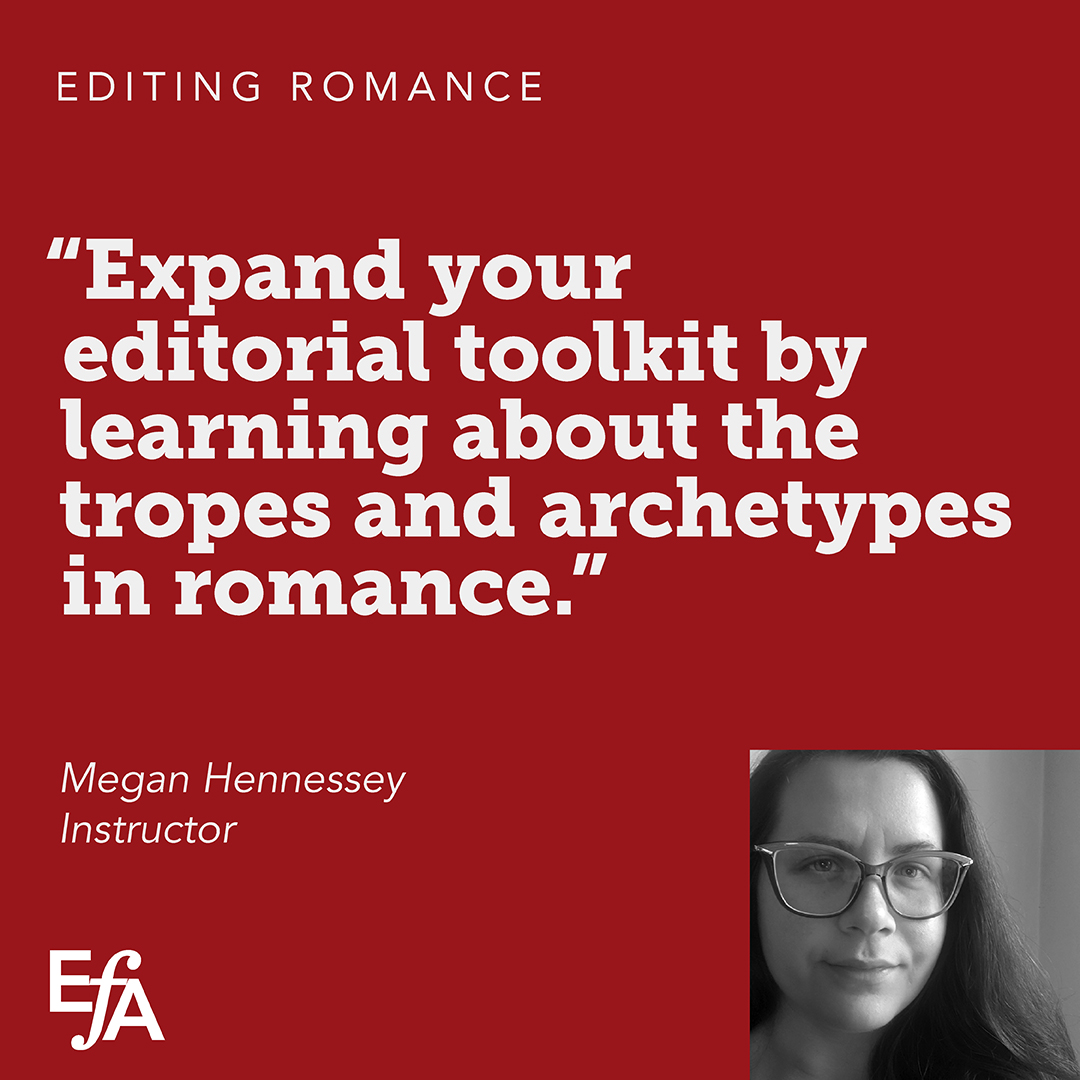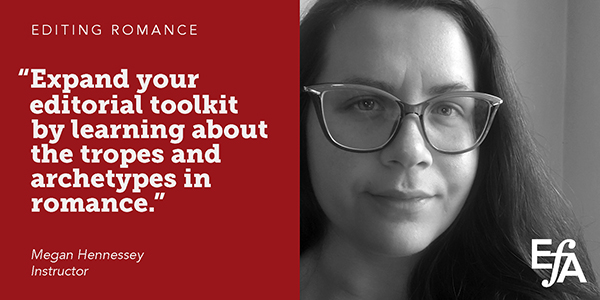Description
Our courses are asynchronous, meaning you never need to be at your computer at any specific hour. More information about how these classes are conducted is available here.
After placing your order, your course will be added to your personal course library on our education site. That site has different login information from the main EFA site. Please check your email for information on how to access the course.
If this session is full or the dates don’t work for you, join the waitlist to be informed of last-minute openings and future sessions.
This deep dive into romance will help developmental editors build genre toolkits. Though being familiar with the romance genre is a plus, it’s not required. Students should have experience with developmental editing and a strong understanding of story structure fundamentals. All the basics of romance—story beats, tropes, and even the history of the genre—will be covered.
We’ll read a wide array of romance excerpts and one complete novel, and you’ll get direct instructor feedback on several short assignments and then a complete developmental edit (including editorial letter) of a short novella. You should expect to spend up to 5–7 hours per week on classwork and forum discussions with the instructor and other students. You’ll come away from this class knowing everything you need to begin providing developmental editing services to romance writers.
Week 1: We’ll read After Hours on Milagro Street by Angelina M. Lopez and identify the narrative beats, filling out the beat sheet from Gwen Hayes’s Romancing the Beat: Story Structure for Romance Novels.
Week 2: We’ll identify the tropes and archetypes in After Hours on Milagro Street and how they contribute to the narrative, and also identify the tropes and archetypes listed in the back cover copy of several other romances.
Week 3: We’ll take a deeper look at the “rules” of romance, review the history of the romance genre, and study examples of books that subvert tropes and otherwise go against expectations.
Week 4: We’ll discuss sex on the page: how it functions, what it can do within a narrative, and how it can be hot (or funny, or tense). You will also receive a short novella to developmentally edit, which will be due at the end of Week 5 as your final project.
Week 5: We’ll go over the summary sheet and discuss how editors can help writers receive feedback.
Required materials: Students will need to purchase or borrow After Hours on Milagro Street by Angelina M. Lopez and Romancing the Beat: Story Structure for Romance Novels by Gwen Hayes. All other reading materials will be provided.
Students need to have experience with developmental editing or complete the EFA self-paced course “Developmental Editing of Fiction: Beginning” before taking this course.
You must be 18 or older, as of the course start date, to enroll in this course.
Megan Hennessey is a freelance writer, instructor, and developmental editor. She got her start in romance at the height of 50 Shades of Grey at Sourcebooks Casablanca reading the slush pile. She continues sharing her love for romance by giving workshops and courses at writers’ groups, the Women in Publishing Summit, and the Editorial Freelancers Association. She loves romance novels that break the rules and center queer, kinky characters. Come say hi at her website meganhennesseywrites.com or on Twitter @hegmennessey.



